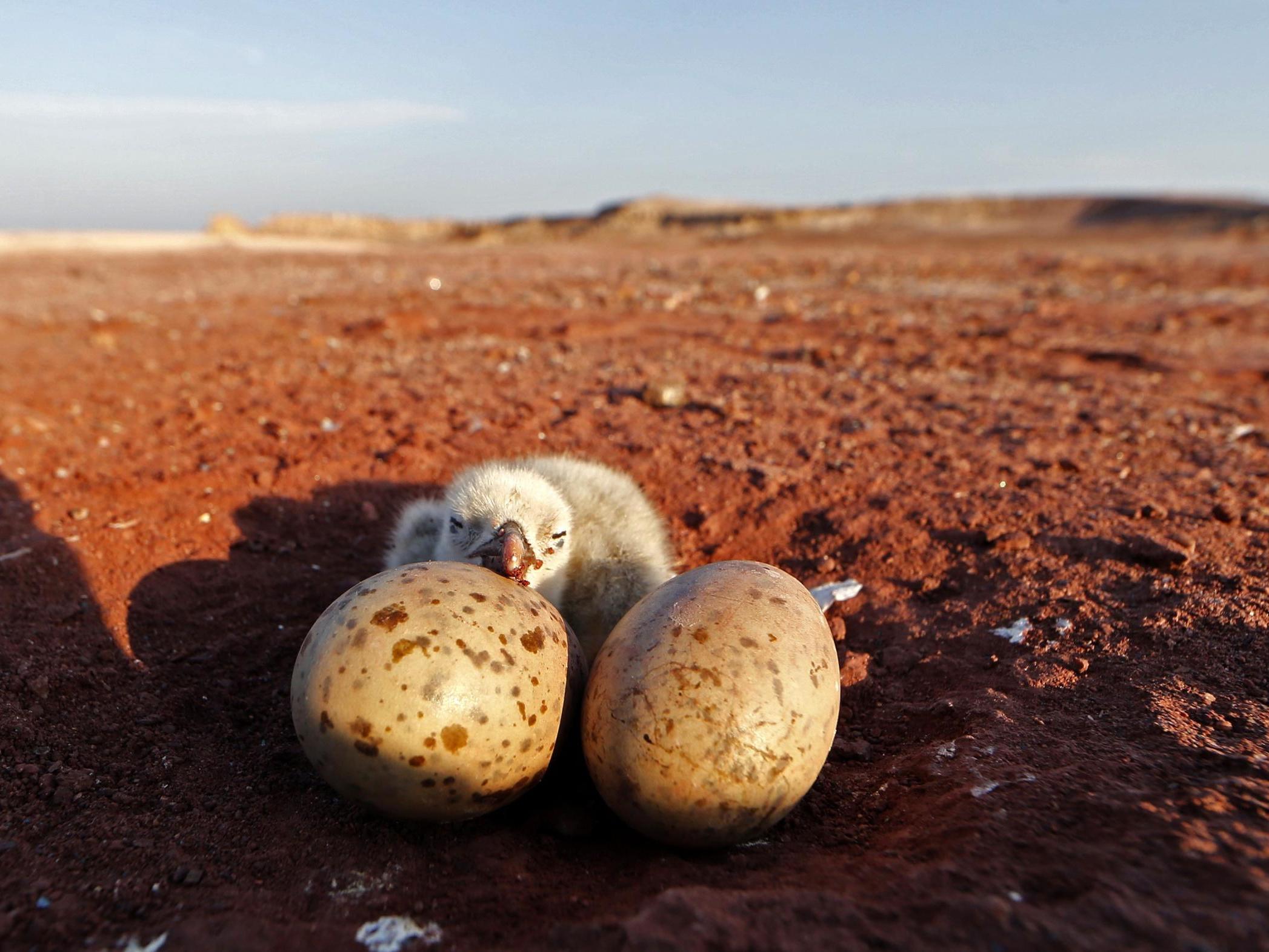Unhatched birds exchange survival skills from within their eggs, researchers find
Embryos able to trade cues about their environment with nearby siblings

Your support helps us to tell the story
From reproductive rights to climate change to Big Tech, The Independent is on the ground when the story is developing. Whether it's investigating the financials of Elon Musk's pro-Trump PAC or producing our latest documentary, 'The A Word', which shines a light on the American women fighting for reproductive rights, we know how important it is to parse out the facts from the messaging.
At such a critical moment in US history, we need reporters on the ground. Your donation allows us to keep sending journalists to speak to both sides of the story.
The Independent is trusted by Americans across the entire political spectrum. And unlike many other quality news outlets, we choose not to lock Americans out of our reporting and analysis with paywalls. We believe quality journalism should be available to everyone, paid for by those who can afford it.
Your support makes all the difference.On Salvora Island, off the coast of Spain, thousands of yellow-legged gulls dot the grassy cliffs from April to late July.
It is a riot of white wings and plaintive calls. Occasionally, the chorus changes as the seabirds engage in courtship and chick-feeding.
And when the adults notice a predator, such as a dusky-coated mink, the chorus shifts again, to a characteristic alarm call – ha-ha-ha.
These acoustic cues reach not just young and adult gulls but unhatched embryos, too.
In 2018, researchers found that when gull eggs hatch, the ones that were exposed to alarm calls were able to crouch and hide from predators a couple of seconds faster than others.
A few other bird species, including quails, fairywrens and zebra finches, are known to relay similar cues about the environment to their unhatched young, to prepare hatchlings to fend for themselves.
But embryos aren’t receiving wisdom only from their parents.
A new study, published last week in the journal Nature Ecology & Evolution, suggests that they’re also receiving cues from nearby unhatched siblings.
“Paying attention to cues from the outside is important for survival,” said Jose Noguera, an evolutionary ecologist at the University of Vigo in Spain, who led the study.
Embryos that do so develop traits that provide an advantage in avoiding predators, identifying other species of birds or building their own nests in warmer temperatures later in life, he said.
To study how yellow-legged gull embryos learned social cues, Mr Noguera and his colleague, Alberto Velando, camped out on Salvora during the birds’ egg-laying season.
Typically, the mother gulls lay an egg a day until they have a clutch of three. The researchers waited and collected a total of 90 gull eggs over a period of three days. The eggs were transferred to incubators at a field station nearby, and kept in groups equal in size to wild clutches.
Each day, the researchers removed two eggs out from each clutch and exposed them to audio recordings of adult gull alarm calls.
Eggs from a control group were handled similarly, except they were not exposed to any sounds. Thus manipulated, the eggs were returned to their clutches.
The researchers had created two groups of gull embryos.
One in which two siblings had been “informed” of possible predators, with a third “naive” egg, just as if three had been laid a day or two apart in the wild. In the other group, all three gull siblings were naive.
All three embryos from the test group soon exhibited the same adaptations. The two “informed” embryos made fewer peeping noises while in the egg.
But so did the third embryo, even though it hadn’t been exposed directly to the gull calls.
And once the chicks hatched, all three showed stunted growth, higher levels of stress hormones and faster reflexes than the control group, responding to alarms by crouching and hiding more quickly.
“That’s completely unexpected,” said Kevin McGowan, an ornithologist at the Cornell Lab of Ornithology, who was not involved in the study.
“It’s one thing if everybody is on the same page – they hear the same thing and respond the same. But this study suggests that birds that are a day or two advanced can communicate their wisdom to their siblings.”
Vibrations from the two “informed” eggs had transmitted information about gull alarm calls to the third egg. In the wild, the small informational advantage could mean the difference between being eaten or not.
“It’s a rough world out there,” Mr McGowan said. “Most young birds do not survive to grow up to be adults, and most adult birds do not produce new offspring that survive predation.
“Natural selection is a monstrous numbers game.” If you can gain a leg up by eavesdropping on your siblings, why not do so?
New York Times
Join our commenting forum
Join thought-provoking conversations, follow other Independent readers and see their replies
Comments